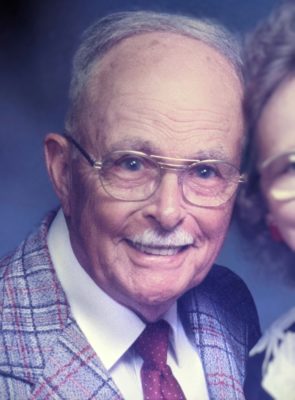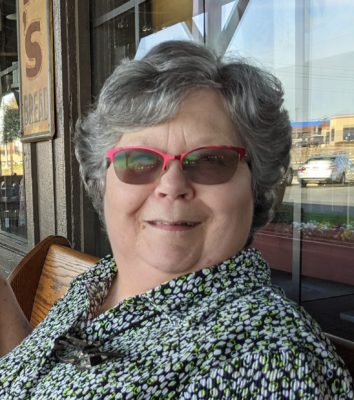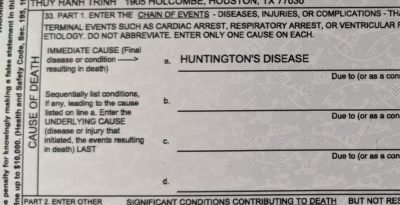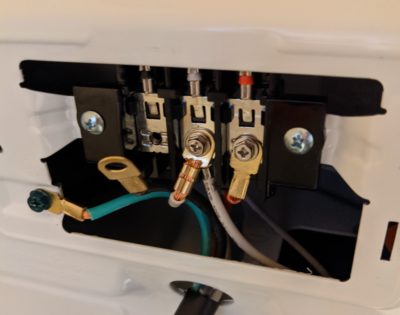This post describes, my recovery from the loss of my wife to a degenerative neurological condition called Huntington’s Disease. She was healed of this condition when she went to live with our Heavenly Father at 2:30AM, the 10th of January 2021. You can read the announcement here.
Or if you would like to read our story from the beginning, you can start with: How We Got Here…
My dad used to say that it was a miracle that he didn’t end up either in prison or on death row. He was born in a sod hut on the plains of Nebraska in 1916 or 1917. Soon after his birth, the family moved to Grandin, Missouri. But things didn’t go well for him there. His father ran out on the family (which consisted of my dad, his older sister Hattie, and their mother) when he was just a toddler. When Dad was about five, his mother died of tuberculosis, and he was given to a family to raise but was soon handed over to an old woman named Becky Moore. She was in her later 70s, and was extremely abusive, physically.
He lived with her until he was about 16. He survived by learning to be quick on his feet to dodge chunks of cordwood that she would chuck at him – her favorite way of expressing her “displeasure” with something Dad had done. He also learned the value of “lighting out” ‒ getting out of the house for a few days to live in a lean-to he’d built for himself on an island in the middle of the nearby Little Black River.
Shortly after Dad turned 16, a recruiter for the Army came through town, offering what Army recruiters have offered since time immemorial: good pay, adventure, and a chance to see the world. That all sounded good, so Dad went in to talk to him but discovered that at age 16 he was too young. However, a week or so later, something made Becky Moore even more angry than she usually was, and which put Dad in fear for his life, and he knew he had to light out for good.
He tracked the recruiter down at his office in Poplar Bluff, Missouri and pleaded his case, hoping that the Army could make an exception. Looking back, Dad could see that the recruiter recognized him from their previous meeting in Grandin, because when Dad finished his story, all the recruiter said was:
“So how old are you today?”
To which Dad answered, “Eighteen, sir.”
“Well, in that case, son, it looks like you’re in the Army. Hold up your right hand and repeat after me…”
Though the Army obviously produced challenges and plenty of heat of its own – like two wars – it was very good for my dad. He used to say that in a very real sense, the Army was his mother and father because it taught him to say “sir” and “ma’am,” and how to keep his nose clean. So, he grew up to be a kind and gentle man, a dauntless friend and a fearsome enemy. He never swore because he said that using profanity was a sign of a lack of education.

❦ ❦ ❦ ❦ ❦ ❦
I have written about my dad before, but I bring him up again because the comparison between him and his sister Hattie is particularly telling – and significant when talking about caregiving, grieving, and recovery.
You see, after their mother died, Hattie had some hard times too. Being five or six years older than my dad, she was taken in by a well-to-do family there in town and grew up never needing anything. But the outcome was very different. She grew up mean and argumentative, with a demanding nature where everything had to be her way. As a child, I remember Aunt Hattie as being someone who didn’t know how to play – and her language would occasionally leave drunken sailors blushing with envy. Even when she wasn’t angry, she sounded like she was snapping at you, biting off her words. In the end, her temper pretty much defined her. One thing Dad used to say her that was always assured to irritate her was, “Now sister: Temper, temper…”
However, the word “temper” has more than one meaning. In addition to being a noun that names something (typically negative) that someone has, it can also be a verb. Tempering is something that you can do to something, typically a ferrous metal such as iron or steel. (For cooks: Yes, I know you can temper chocolate too, but that’s an analogy for another day.)
The process for the tempering of steel starts by heating it to several hundred degrees and then quenching it quickly in water or oil. Though many people don’t know it, steel has a crystalline structure and the heating causes the atoms in the metal to become more mobile and redistribute themselves in a chaotic manner. The quenching then cools the metal quickly, essentially locking the metal’s new crystalline structure in place. The result is a metal that is very hard and very strong, but which exhibits a significant downside. Metal in this state is also very brittle and when deformed too much will sometimes shatter. Similarly, steel in this condition can be sharpened to a very fine point, but it won’t hold the edge well, as its brittleness means that it will wear rapidly.
Tempering deals with this limitation by reheating the metal (or more typically some part of the metal) and letting it slowly cool. This part of the process allows the crystalline structure to relax a bit, which weakens it slightly but also makes it more ductile and far less susceptible to catastrophic breakdown.
In addition to iron and all manner of steel, people can also be tempered – and as with the metal it sometimes requires a lot of “heat”.
In the case of my father and his sister, they both went through the “heat” of the initial trials and at first became very hard. But after that initial “heat treatment,” the reactions of the two were very different. My dad saw subsequent trials as things to be overcome, and as opportunities to learn. So over time, he became my dad, hard where he needed to be, but also warm and loving.
Aunt Hattie, however, just saw additional trials as things to be avoided at all costs. Her motto was to always take the easiest road possible. Consequently, she remained hard, and her spirit was brittle and susceptible to shattering. Many of the defining events in her life were places where she had to stop and “pick up the pieces.”
As we go through life as caregivers, care receivers, or those grieving a loss, the same two options are available to us. We can let the heat come when and where it may and welcome it as a force to form us into who we were meant to be, or we can reject it and the change it could have wrought and remain hard, and spiritually and emotionally brittle.
Taking the step to embrace the heat can take courage – in fact, a lot of courage. But where does that sort of courage come from?
The truth is, having the courage to believe in the future is only a risk if the future is random and uncertain. Thankfully, such is not the case. Thankfully, there is Someone with a hand on the wheel who sees not only your future, but the future of everyone who ever was, is now, or ever will be.
What’s more, the owner of that hand cares about you deeply, and in ways that you can’t begin to imagine. So the real question is, how do you begin to trust in that Guide? A very long time ago, a young man got so excited about the possibilities that he wrote a song about it:
“O, taste and see that the LORD is good; How blessed is the man who takes refuge in Him!”
Ps 34:8
In a sense, this statement is the exact opposite of “blind faith” that many people think is required. Rather, this speaks to a faith that has proven itself over and over again across untold generations. A faith that is not only unafraid of reality checks, but actively invites them.
Our Creator intends far more for us than mere survival. He earnestly desires for us to thrive, where we are as sharp tools in the hands of a skilled craftsman – and for that we sometimes need to go through the flames to be perfected, refined, and tempered.
One last point I want to make is that last week, I left a cryptic note at the end of the last post, that we would have to see how things went “next week.” Well, those of you who follow me on Facebook already know how things went. I have changed my profile to reflect that I am “In a Relationship” with a beautiful Christian lady by the name of Jean Barnes.

She lost her husband to HD 15 years ago, and her daughter to the same disease in February. She was the dear friend I mentioned in a post, when I drove into Dallas to attend her daughter’s visitation. After a few subsequent visits and many long text conversations and phone calls, it became obvious to both of us that we needed each other and God was bringing us together.
So, yes, I have tasted, and indeed He is very good…
In Christ, Amen ☩
❦ ❦ ❦ ❦ ❦ ❦
A prayer for when you are going through the fire…
“Blessed are You, Lord God, King of the Universe. It is right that I should at all times and in all circumstances bless You for Your commitment to me as shown by Your willingness to sacrifice so much for me. But today I want to bless You especially for the miraculous ways in which You have brought together the disparate threads of my life and satisfied my innermost needs by answering prayers I didn’t even know enough to pray. Amen.”




